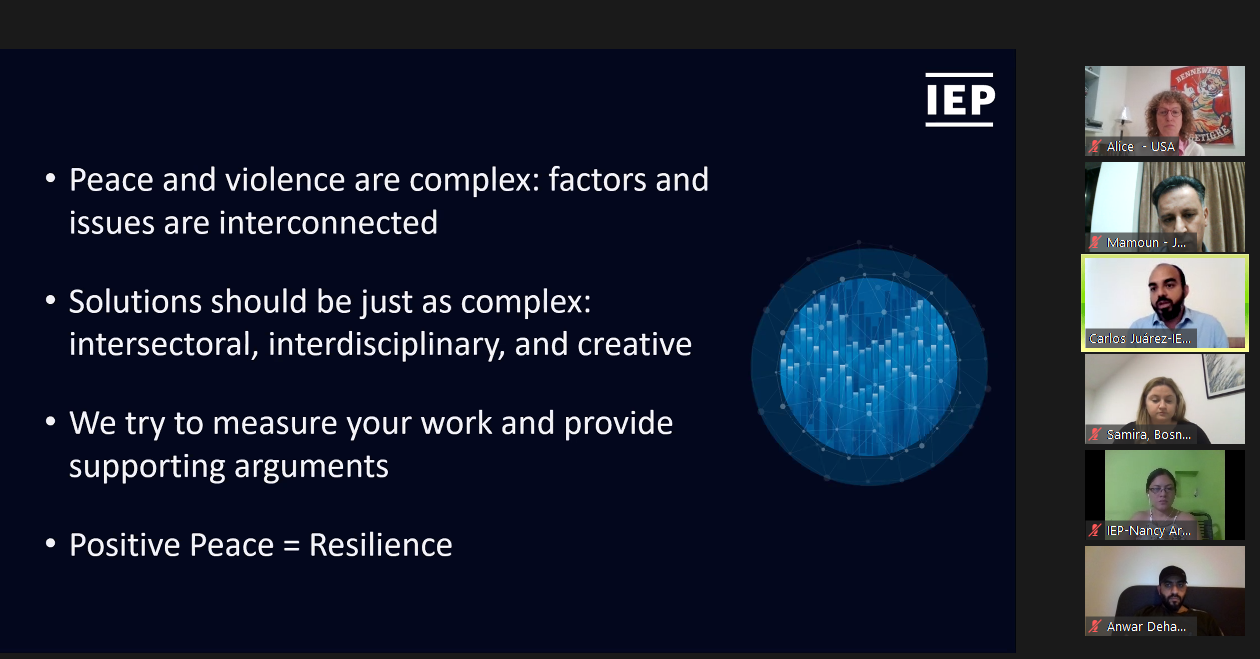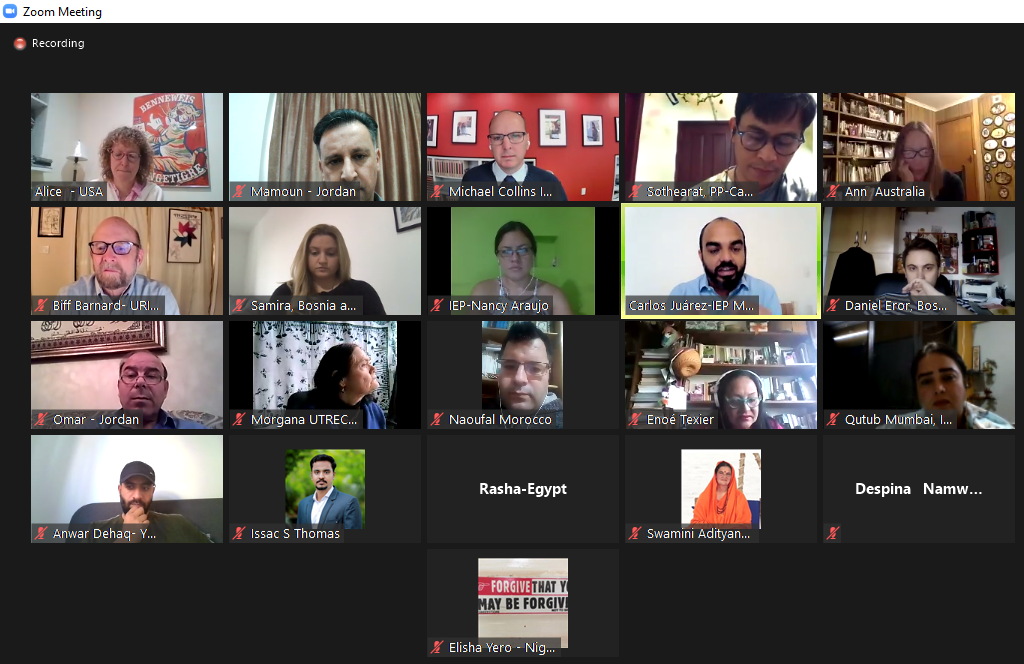Building Peace in a Complex World
On November 3, 2020, URI MENA RC and Global Trustees attended a training on “Building Peace in a Complex World” by Mr. Carlos Juarez of the Institute for Economics and Peace (IEP).
I would like to share the 8 Pillars of Positive Peace as identified by IEP:
1. Well-Functioning Government – A well-functioning government delivers high-quality public and civil services, engenders trust and participation, demonstrates political stability and upholds the rule of law.
2. Sound Business Environment – The strength of economic conditions as well as the formal institutions that support the operation of the private sector. Business competitiveness and economic productivity are both associated with the most peaceful countries.
3. Equitable Distribution of Resources – Peaceful countries tend to ensure equity in access to resources such as education, health, and to a lesser extent, equity in income distribution.
4. Acceptance of the Rights of Others – Peaceful countries often have formal laws that guarantee basic human rights and freedoms, and the informal social and cultural norms that relate to behaviours of citizens.
5. Good Relations with Neighbours – Peaceful relations with other countries are as important as good relations between groups within a country. Countries with positive external relations are more peaceful and tend to be more politically stable, have better functioning governments, are regionally integrated and have lower levels of organised internal conflict.
6. Free Flow of Information – Free and independent media disseminates information in a way that leads to greater knowledge and helps individuals, businesses and civil society make better decisions. This leads to better outcomes and more rational responses in times of crisis.
7. High Levels of Human Capital – A skilled human capital base reflects the extent to which societies educate citizens and promote the development of knowledge, thereby improving economic productivity, care for the young, political participation and social capital.
8. Low Levels of Corruption – In societies with high levels of corruption, resources are inefficiently allocated, often leading to a lack of funding for essential services and civil unrest. Low corruption can enhance confidence and trust in institutions.



